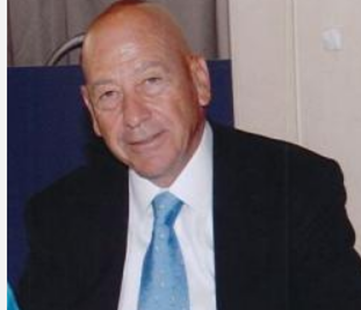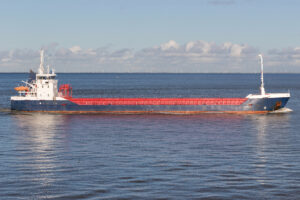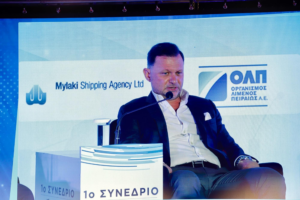
Greek shipping tycoon George Procopiou, chairman of Dynacom Tankers Management and owner of the largest shipyard of Greece, the Skaramangas Shipyards, whose name “figures” in the 100 most important people in shipping on an annual basis, criticized the EU ETS scheme during the internationally renowned Maritime Cyprus 2023 Conference, held in Limassol from 9 to 11 October.
Within the framework of the conference, the “Cyprus Maritime Personality Award” was bestowed to Mr. Prokopiou, in recognition of his substantial contribution to the shipping industry, which spans over 50 years, having purchased his first ship in 1971.
Speaking about the future of EU shipping, George Prokopiou noted that “Europe is shooting itself in the foot”, adding that the shipping industry would be better off focusing on energy efficiency measures, rather than hindering growth through restrictive policies.
Organized by the Shipping Deputy Ministry of the Republic of Cyprus, the Cyprus Shipping Chamber and the Cyprus Union of Shipowners, this year’s conference, themed Shipping in Action: An Agenda for Change, hosted more than 900 shipping professionals from around the world.
Participating at the panel discussion titled Navigating the Seas of Capital: Exploring Ship Finance, Harry N. Vafias, chief executive and founder of StealthGas said that owners with two to five vessels, often in dry bulk, will continue to win against the bigger players, as the balance sheet is the most important element, with low leverage and a focus on OPEX.
Another big player of shipping industry, Emanuele Grimaldi, ICS chairman and president and MD of Grimaldi Euromed SpA, speaking at the panel titled Sustainable Shipping towards 2050: a Mission (Im)Possible? called for a “fund & reward system” to support early adopters of newer, more expensive fuels in shipping.
From his side Polys V. Hajioannou, chief executive and chairman of Safe Bulkers offered encouragement, sharing his optimism around Fuel EU Maritime, which he believes will drive momentum in the transformation of shipbuilding.
At the same panel, Themis Papadopoulos, CSC president and chief executive of Interorient Navigation, suggested the development of a global, rather than local, set of regulations, saying: “The IMO must develop a new system, instead of requiring members of the shipping industry to comply with multiple sets of legislation, which complicates the industry’s journey towards decarbonization.”
Echoing these thoughts, Dr Gaby Bornheim, president of German Shipowners’ Association (VDR), said that “new rules must be internationalized – we need a clear, global framework to proceed with achieving net zero by 2050. One that extends further than the EU.”
It’s worth noting that the President of the Republic of Cyprus, Nikos Christodoulides, delivered the opening address of the conference. The President emphasized that the shipping sector requires fast reaction and effective response to crises and challenges, innovative planning, adaptability, and a proactive mindset.
The President also referred to the contribution of Cyprus to the transition of shipping to a low or even zero carbon industry, the process of digitalizing Cyprus Shipping Deputy Ministry’s internal processes, the creation of a one-stop-shipping center, and the implementation of the Shipping Limited Liability Company Law. Finally, Mr. Christodoulides highlighted that Cyprus promotes maritime professions and gender equality in shipping.
Atef Abou Merhi, managing director of Pelagic Partners noted how small companies are the cornerstone and backbone of shipping and will stay. “But there is more focus now on pools, for example, where we see consolidation on the commercial side. And smaller companies increasingly need support from ship managers,” he concluded.
During the conference, an audience member questioned the shipowner response to Covid-19 and the pandemic’s impact on the livelihoods of seafarers. Panelists acknowledged that, collectively, the industry’s response was not good enough, and that the level to which these keyworkers were let down has still not yet been recognized.


